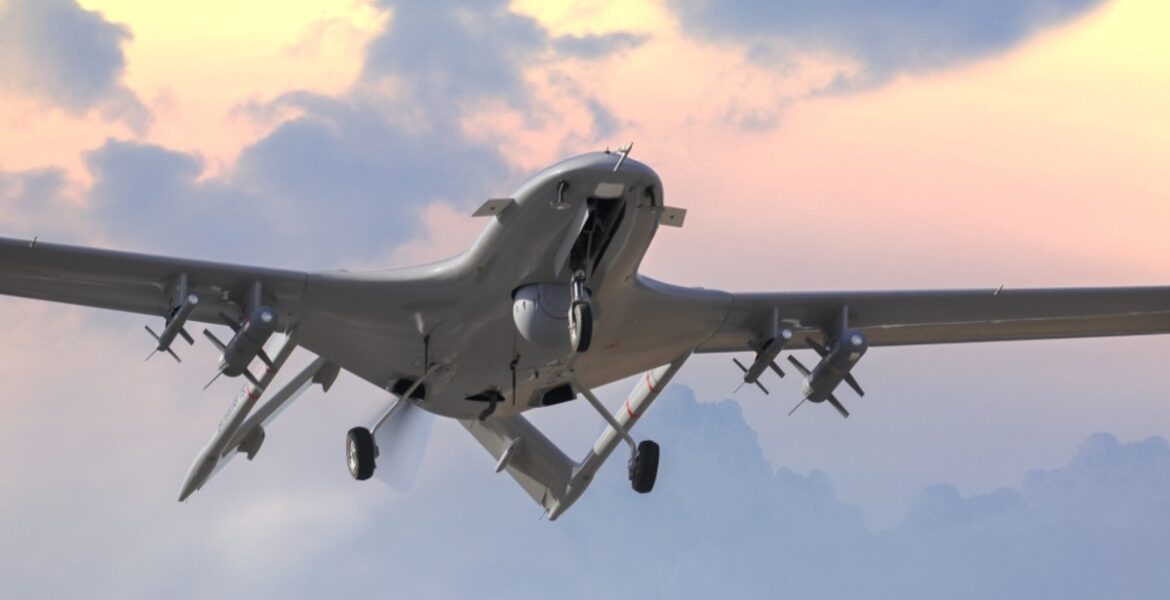The Nagorno-Karabakh war is considered to be the first conflict to highlight the crucial role of unmanned aerial vehicles (UAVs/drones) in warfare.
They dealt a crushing blow to conventional ground military forces.
Azerbaijan used drones to pave the way for the Azeri military to take control of strategic points in Nagorno-Karabakh and achieve an extensive victory against Armenian forces.
The use of drones in Nagorno-Karabakh was highlighted in an analysis by the Israeli BESA Center, which describes it as the first postmodern war and explains its key features, such as reduced losses for those that have included drones in its strategic plans.
Azerbaijan has used oil and gas export revenues to modernize part of its armed forces, but mainly to invest in a drone fleet and a high-precision ballistic missile force.
Until recently, the main supplier of UAVs was Israel, which sold to Azerbaijan the HAROP UAV system, which is designed to attack targets and completely destroy them by falling on them – hence why it is also called a “suicide drone”.
The Azeri armed forces were also equipped with Turkish drones, the Bayraktar TB2, which made a significant difference in the Nagorno-Karabakh war.

Armenia, the loser of the war, was forced to sign a capitulation with Azerbaijan, lose territory in Nagorno-Karabakh and turn tens of thousands of Armenians into refugees.
The opposition and public opinion continue to react and demand the resignation of Armenian Prime Minister Nikol Pashinyan.
Drones made the difference
Armenia did not have the resources to modernize its military ground forces and air defense.
It had a large amount of military equipment consisting of old weapons of the Soviet era, some of which are already considered obsolete.
The only exception was the Armenian Air Force, which had four modern Russian Sukhoi 30SM fighters.
Armenia also had a unit of the Russian “Repellent” anti-drone electronic warfare unit in its military equipment, but this could not withstand the attacks of the Azeri drones.
Pashinyan told the Russian news agency Avia that the system did not work.
The second Nagorno-Karabakh war is described as the first postmodern war, as a lot of activity was videotaped and broadcast by drones operating on the battlefield.
Thoroughly examining each video released by the two warring parties, Dutch analyst Stijn Mitzer calculated the losses of the Armenian ground forces: 185 tanks, 89 armored vehicles, 182 artillery arrays, 73 artillery pieces, and 14 radars.
The actual number of casualties could have been higher, but even these losses indicate that a large part of Armenia’s equipment was destroyed.
One of the key features of this new kind of air warfare is the lack of accidents or downing of aircraft, which burdens the governments of the warring parties financially, but also affects them negatively in the psychological field.
As a result, the Nagorno-Karabakh conflict could boost global demand for UAVs and accelerate the development of offensive and defensive electronic warfare systems.
Message in Greece
The use of drones by Azerbaijan (mainly Turkish drones) in the Nagorno-Karabakh war, sends messages to Greece, which has lagged behind on this issue.
However, efforts are being made by the Greek Armed Forces to procure drones, with the aim of being ready to respond effectively to this kind of new war.
The armed forces plan to acquire two Israeli Heron UAVs in the spring.
Azerbaijan’s victory over Armenia could spark intense debate in governments over the role of UAVs in planning defense and offensive plans.
The lessons of the Caucasus war may spark a new arms race between countries such as Turkey, which are producing such advanced UAVs, and other countries against which they could be used.
The views of the author do not necessarily reflect those of Greek City Times.
Georgios Protopapas is a journalist and strategic analyst that regularly contributes to SLPress.


